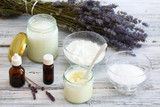Hollywood’s Best-Kept Secret: How Actors Stay Sweat-Free
When the cameras roll and the lights blaze hot, there’s one thing actors can’t afford: sweat. But with no pit stains in sight in movies and TV shows, you might be curious: Are our fa
Jun 25th 2025










